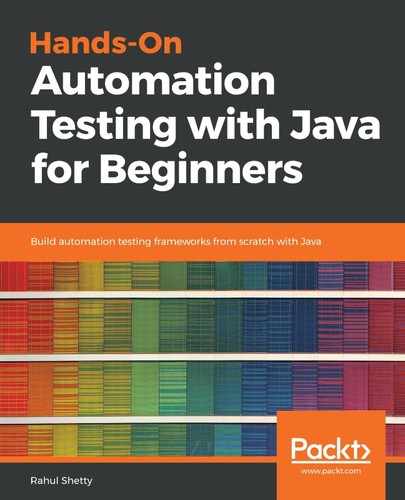Book Description
Learn Java programming concepts to design automation testing frameworks
Key Features
- Learn to use Java program logic in application testing
- Understand various test-driven development concepts with Java tools
- Master Java with lots of programming examples
Book Description
Java is one of the most commonly-used software languages by programmers and developers. Are you from a non-technical background and looking to master Java for your automation needs? Then Hands-On Automation Testing with Java for Beginners is for you.
This book provides you with efficient techniques to effectively handle Java-related automation projects. You will learn how to handle strings and their functions in Java. As you make your way through the book, you will get to grips with classes and objects, along with their uses. In the concluding chapters, you will learn about the importance of inheritance and exceptions with practical examples.
By the end of this book, you will have gained comprehensive knowledge of Java.
What you will learn
- Understand the practical usage of Java conditions and loops
- Write any Java program logic with strategies, tips, and tricks
- Leverage advanced topics in Java collections to solve Java-related problems
- Understand and use objects, classes, methods, and functions in Java
- Build Java automation frameworks from scratch
- Obtain knowledge of Java object-oriented programming (OOP) concepts with practical implementations
Who this book is for
Hands-On Automation Testing with Java for Beginners is for software developers who want to step into the world of software quality assurance and perform automation testing using various testing frameworks. Prior experience of writing tests in Java is assumed.
